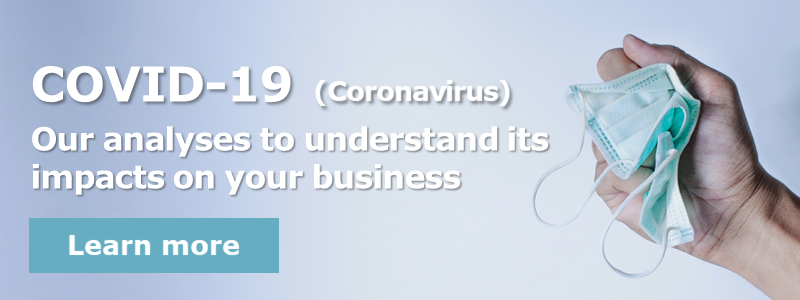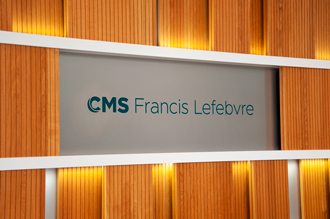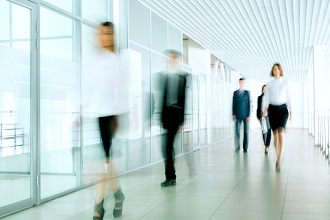In a letter sent to the Minister of Labour, Muriel Pénicaud, on Thursday, 30 April 2020, six employer organisations (CPME, FNSEA, Medef, U2P, UNAPL, and Udes) asked the public authorities for clear health recommendations with a recognised legal scope over the actions to be implemented in businesses and, also to have the practical means to implement them. They feel that both conditions are essential to enabling businesses to assume their enhanced best-efforts obligation faced with a “pandemic risk that no one can claim to have mastered and for which businesses are not responsible”.
In this context, on 03 May 2020 the Ministry of Labour made public a “National deconfinement protocol for businesses” (downloadable at the website: https://travail-emploi.gouv.fr/IMG/pdf/protocole-national-de-deconfinement.pdf) intended, starting 11 May 2020, to support employers in preparing for a resumption of activities.
First of all, that protocol reminds employers that they must, in descending order of priority:
- Prevent the risks of exposure to the virus;
- Evaluate the risks that cannot be prevented;
- Favour collective protective measures over individual measures.
Next, the protocol recalls that, in order to prevent the risk of crowding and concentration of staff, teleworking should be the rule whenever it can be implemented. However, if the presence of employees in the workplace proves necessary, other measures must be implemented, such as “sequencing of activities and the use of staggered schedules”.
The Ministry of Labour has divided that protocol into several sections.
- Barrier measures and social distancing
- Minimum of 4m2 of space per person
In order to maintain a “maximum number of persons simultaneously admitted into an open space” and thus ensure a maximum distance of one metre around a person (in all directions), the public authorities have established the “universal” maximum occupancy criteria for public spaces and social environments at a minimum of 4m2 per person.
The establishment’s surface area to be taken into account in order to determine the number of employees who may be present at the same time in the business is the surface area actually available for occupants, minus the occupied portions.
As a last resort, i.e., when certain situations include an uncontrollable risk of the accidental breaking of social distancing, additional measures such as wearing a “general public” mask will have to be implemented.
- Managing flows of persons
The consequence of gradual deconfinement is that “flows of persons must be the subject of a rigorous analysis in the context of the pandemic” in all workspaces. The employer will then have the objective of specifying “circulation plans” in enclosed areas as in open areas, in order to ensure respect for minimum physical distancing. Thus, for example, “if the 3 elevator cars can transport only 2 persons while respecting social distancing, that limitation will dictate the terms of organisation (schedules and also meeting start times in order to account for the time needed to reach the meeting place)”.
The new conditions for circulation and the uses of spaces must be known by the persons working in the organisation, as well as other players (clients, suppliers, service providers, etc.).
- Outdoor interventions and common areas
Special organisational modalities must be provided for, particularly “when a third party moves about the premises to perform an intervention” (repair, etc.) in the parts of the business where the employees work, or in the common areas. In the former case, “signage delimiting the intervention area” must be used. In the latter case, the use of appointments should be favoured.
The use of common areas should be “channelled (markings on the floor, tape, cones, barriers, etc.) with different enter and exit directions”, and break times should be staggered as much as possible.
“Best practices” are detailed for different types of spaces in the business (company canteen, site entrance, break room, etc.) in order to meet those needs.
- Masks and Personal protective equipment (PPE)
PPE supplement the collective protective measures which cannot in any case substitute such measures. First and foremost, the employer will have to implement all collective protective technical and organisational solutions in order to ensure respect for social distancing before planning for the wearing of masks.
The Ministry of Labour provides that, “excluding healthcare professionals, the employer may supply FFP1 masks or alternative masks not for healthcare use, AKA “general public” masks developed in the context of the pandemic”. If the employer decides to generalise the collective wearing of the “general public” mask within the business, it will only be an option and not an obligation.
As for the wearing of gloves, it is recommended to generally avoid the use of gloves, “because they give a false feeling of protection” and become vectors for transmitting the virus themselves.
While businesses have a role to play in the national screening strategy, the Ministry of Labour stresses the fact that screening campaigns organised by businesses for their employees are not permitted. They may, however, encourage “symptomatic employees not to come into the workplace or to leave immediately if symptoms arise at their workplace and to see” a physician. Moreover, it will be possible for them to “precisely evaluate the risks of contamination in the workplace” and to “trace” the contacts of an infected person.
- Dealing with an infected person
The employer is obligated, “as applicable with occupational medicine, to preventively draft an ad hoc procedure for immediately dealing with symptomatic persons in order to quickly isolate them in a dedicated room and encourage them to go home and contact their attending physician”. It is also tasked with developing “contact matrices and qualifying them (“risky” or “negligible risk”) to make it easier to identify contact persons in the event a confirmed case arises.
The document specifies the procedure to follow in such a case, which is based on three principles: isolation, protection, and seeking signs of severity.
The Ministry of Labour has indicated that it “recommends against taking temperatures at the entrance of establishments/structures”, since temperature taking to spot a possibly infected person could be “falsely reassuring”. Employees are encouraged, however, to check themselves for the onset of symptoms suggesting a Covid-19 virus infection. The possibility of such a check nevertheless remains open, as long as its provisions comply with “the provisions of the Labour Code, particularly those concerning internal rules, are proportionate to the objective sought, and offer all required guarantees for the employees concerned, in terms of prior information, non-retention of data, and consequences to be drawn for access to the site”. Temperature checks must be taken “under conditions protecting dignity” and be the subject of prior information.
Therefore, “the check is not recommended and, furthermore, is not mandatory, and the employee is entitled to refuse it”.
- Cleaning and disinfection
The watchword is given to cleaning facilities, and do so frequently. The document specifies the conditions for cleaning and disinfecting workplaces to be implemented. The Ministry of Labour calls for vigilance by all, particularly with the provision of sanitising gel and wipes.
Specifying protective measures requires upstream work on the part of all businesses, particularly in order to evaluate the feasibility and effectiveness of the measures taken. Attorneys with the CMS Francis Lefebvre Avocats Social Department are at your disposal to help you to prepare to open up your business again.
Report: impacts of Covid-19 (Coronavirus)
Our law firm offers you its legal assistance to address all the impacts of Covid-19 (Coronavirus) on your business. Read our dedicated report below.
For more information on our law firm:
Our law firm is a leading international business law firm. Its deep roots, unique positioning and highly recognised expertise enables it to deliver innovative, high value-added solutions in all areas of the law.












Social Media cookies collect information about you sharing information from our website via social media tools, or analytics to understand your browsing between social media tools or our Social Media campaigns and our own websites. We do this to optimise the mix of channels to provide you with our content. Details concerning the tools in use are in our privacy policy.